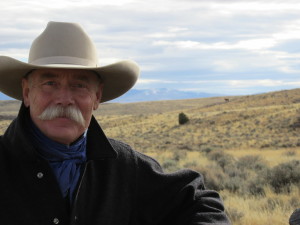 Randy Rieman fulfilled his childhood dream of becoming a horseman when, in his early 20’s he left the Midwest and traveled to Montana. With a keen willingness to work hard and an enthusiasm for learning, he connected with many fine horseman, including Bill and Tom Dorrance in California. For the past 30 years, he has honed his craft in California, New Mexico, Hawaii, and, of course, Montana, which he now calls home. Along the way, he’s also risen to the top as a rawhide braider and a cowboy poetry reciter. He travels nationally and internationally to share what he’s learned.Visit his website.
Randy Rieman fulfilled his childhood dream of becoming a horseman when, in his early 20’s he left the Midwest and traveled to Montana. With a keen willingness to work hard and an enthusiasm for learning, he connected with many fine horseman, including Bill and Tom Dorrance in California. For the past 30 years, he has honed his craft in California, New Mexico, Hawaii, and, of course, Montana, which he now calls home. Along the way, he’s also risen to the top as a rawhide braider and a cowboy poetry reciter. He travels nationally and internationally to share what he’s learned.Visit his website.
Read about his Dorrance memories.
Read about Randy, as a Renaissance Man.
Read our first installment with Rieman.
Here, Randy Rieman discusses the gradients of feel in horsemanship
Register for Randy Rieman Clinic, September 24-26. Click here.
In our premier installment, we hear Rieman’s take on the difference between a sensitive horse and a dull horse. Here, we discuss how to cultivate the sensitive horse and the sensitive, aware rider by considering a common scenario: trailer loading.
BestHorsePractices asks: We hear about offering relief when a horse gives you a try. Does the translation of “a try” get lost on newer horsemen? A try might be facing up to the trailer. It might be leaning towards the trailer. But for some people only a step onto the trailer will be considered “a try.”
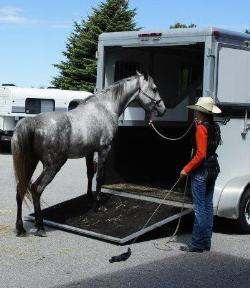 Rieman:
Rieman:
The really good hands aren’t rewarding the result, they’re rewarding the intention.
For the average person, the phone stops ringing after the person picks up. For the exceptional person, the phone stops ringing when they get ready to pick up. It’s kind of a bad example, because it’s a bit of an impossibility. But this is where lightness comes from rewarding the horse’s intention to comply before the act of compliance occurs.
It’s like this: if I put tension on a rein, I’ll say I’m making a request. If my timing is exemplary, when that horse gets ready to yield to that request, I can offer freedom. But I don’t have to be exemplary if I just don’t pull on the horse. If I set my hand and make a suggestion and wait for him to quit pulling on me, I don’t have to move because he’s already rewarded himself. The really good hands set it up so that the horse rewards himself with his intention to comply. The thing they have that makes them exceptional horseman or handlers is that they don’t pull more to get more once the horse has agreed to try.
BHP: But we’re not all exceptional handlers. How do Regular Joes get results?
Rieman: Ray Hunt used to say this (and Buck and others have copied him): Reward the slightest try. That’s good advice. Here’s what I say: Reward the slightest try that you can recognize. When you’re an expert, you have to reward the slightest try that you can recognize. It’s ok if, as a novice, you miss it.
You can’t be responsible for what you can’t see. There’s no reason to be scolded for something you don’t know.
There’s no way a recreational rider has the ability to see as deeply as the guy who does it 10 hours a day for the last 30 years. His timing is based on his powers of observation and intuitive intelligence…when he knows that horse is getting ready to try, that horseman goes into neutral. You don’t drop the request, you just don’t further it. That gives the horse the opportunity to relieve the pressure himself.
Getting back to trailer loading. It’s crucial to be process-oriented, not outcome-oriented.
Some might say, “I just want him to get in the trailer!” They never say how they want him to get in the trailer. “If I have to drop him in there with a crane, that’s how I’m going to do it. Just so long as he gets in there.”
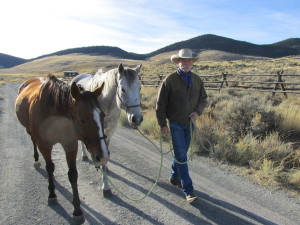 Once you reach a certain point in your passion, it doesn’t matter if he gets on the trailer, it matters HOW he gets on the trailer.
Once you reach a certain point in your passion, it doesn’t matter if he gets on the trailer, it matters HOW he gets on the trailer.
It’s like food: If you’re poor, all you care about is that there’s something to eat. If you middle class, all you care about is how much you eat and if you’re rich, you care about how it’s presented.
We all have these different standards based on our experience levels.
When I was younger, I was just a for-hire cowboy. I could take your cows and put them where they needed to go. Did I know which cow is dominant, which was submissive? Heck, no! I didn’t know any of that. All I knew was we got them in the corral. Mission accomplished. Did I know if my horse was on the correct lead? Heck, no. It didn’t matter..I’m was oblivious. Unconscious incompetence. Read about it here.
Later on, I became so much more aware. Now it doesn’t matter if I get them in the corral, it matters how I get them in the corral. How did that go?
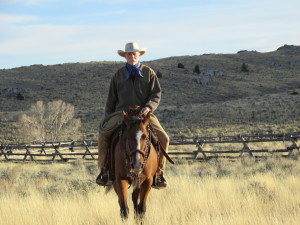 That’s where recognizing the slightest try comes in. As you progress, you will see that you’ve been missing the horse’s preparation. You can reward the preparation instead of the outcome. You can reward the thought instead of the action.
That’s where recognizing the slightest try comes in. As you progress, you will see that you’ve been missing the horse’s preparation. You can reward the preparation instead of the outcome. You can reward the thought instead of the action.
To improve your feel, you have to improve your observation. You have to improve your focus. To do that you have to be able to see what’s happening. If you’re too focused on the outcome, you won’t see what’s happening during the process. You have to get process-oriented: I want to get my horse to turn around, but I want him to turn around correctly. I’ll take slow and correct over fast and incorrect every day. I can always add speed somewhere down the line.
Coming next: Rieman gains insight from a yoga instructor: Relaxation without dullness. Power without tension.
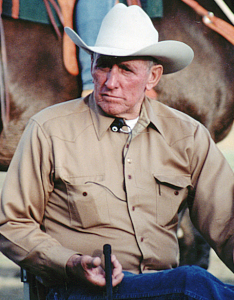
Wonderful explanation of rewarding a “try” and how the handler can progress as they learn more! Yay!!
Very thought provoking article. I appreciate the concept of rewarding the intention, vs the result. Randy does a great job of explaining this concept. There are many clinicians who are good with horses, but few that can verbalize the learning process as clearly as Randy does. Thanks for posting.